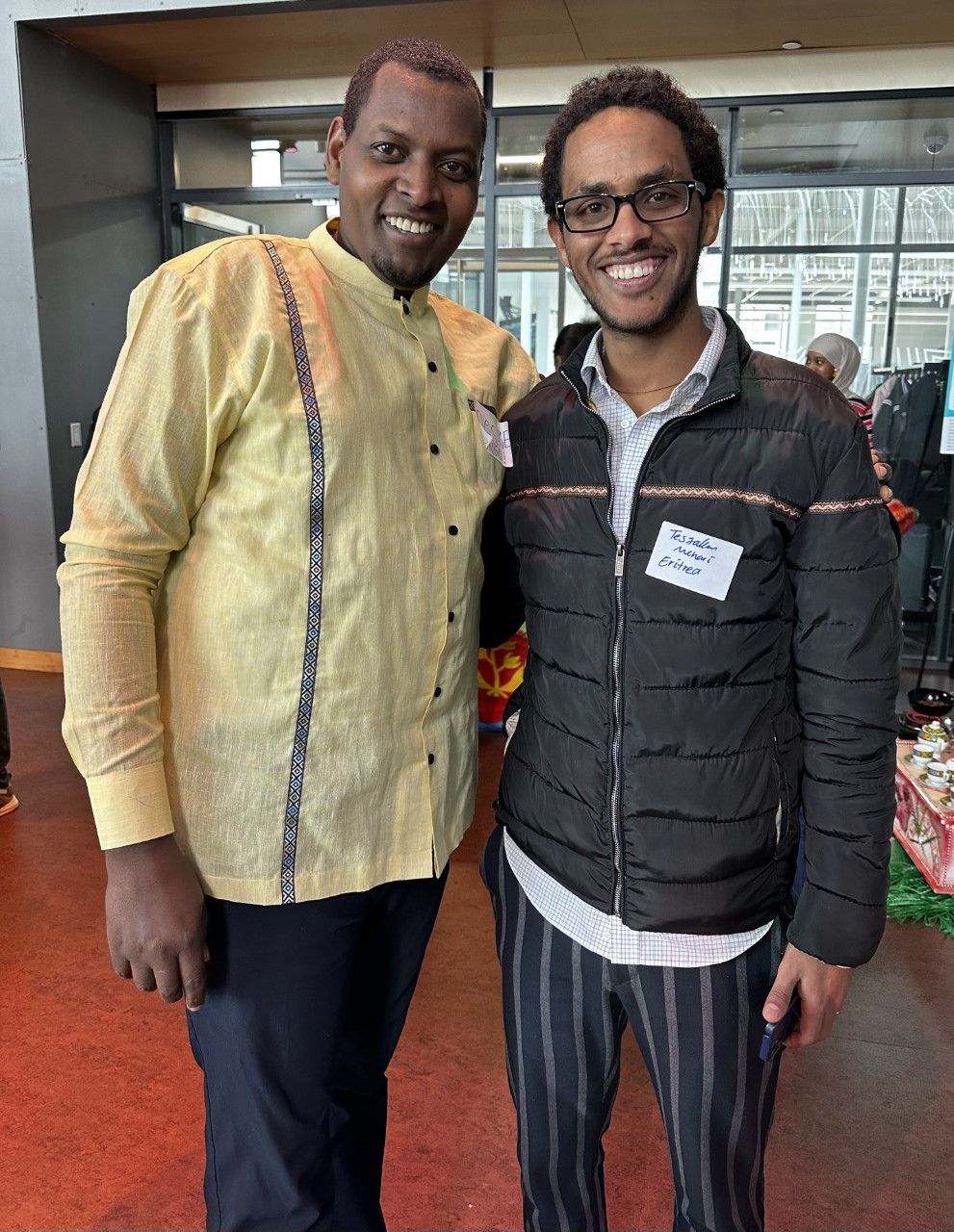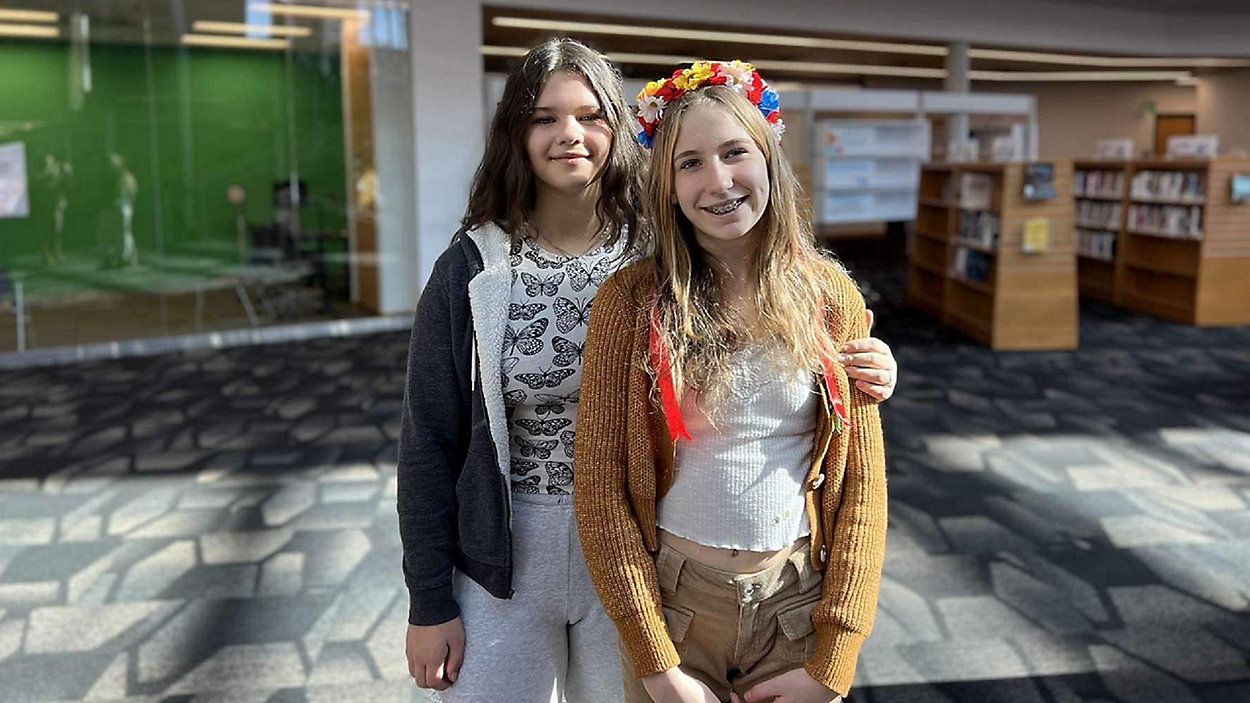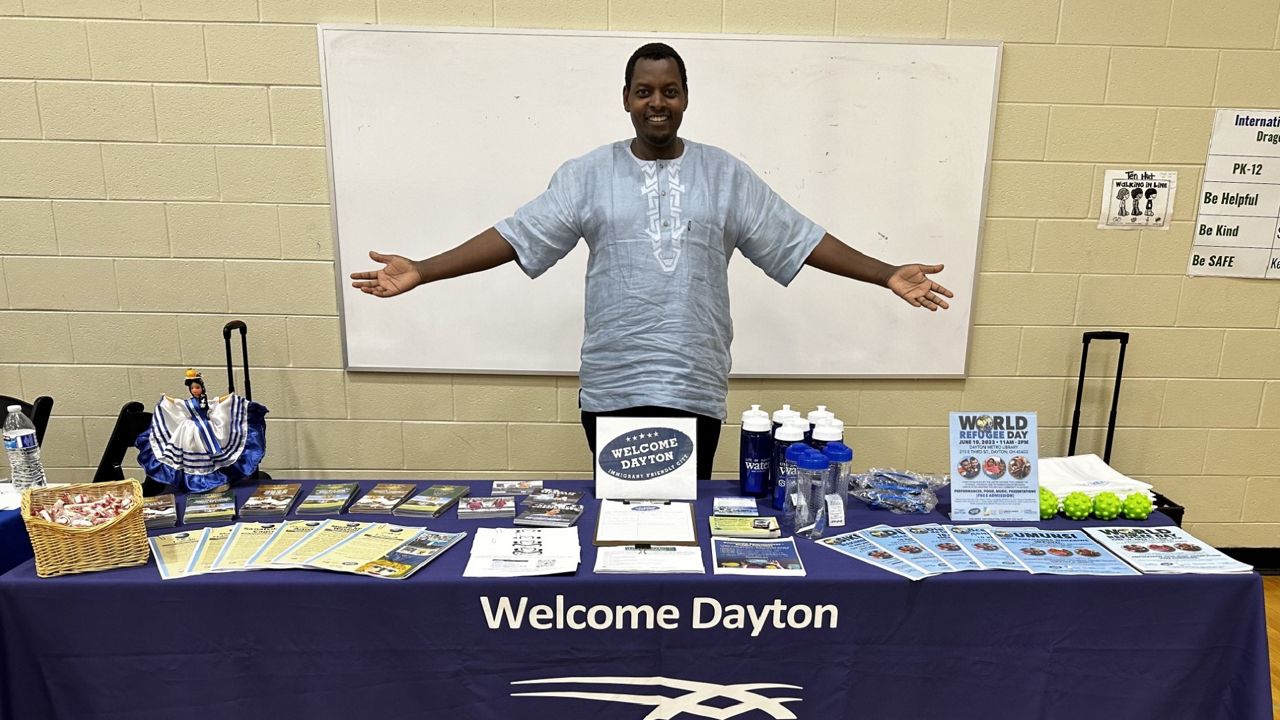DAYTON, Ohio — Desire Ntwayingabo felt he had no choice but to flee his native Democratic Republic of Congo more than a decade ago because of the years-long armed conflict that continues to rage on today.
After years of being shipped from one African country to the next, Ntwayingabo was sent alone as a refugee to the United States, where he knew only one person. His cousin, in a similar situation, was living in Sioux Falls, S.D.
“Life was hard,” said Ntwayingabo, 43. He knew some English. The customs were strange, the traffic laws were different, and finding someone he could trust to help teach him those things wasn’t always easy.
“Everything was a challenge for those first few years,” he added.
Ntwayingabo finally settled in Dayton, Ohio, in 2010. He works as a community engagement specialist with the city. Now, more than a decade later, he’s learned to help ensure others facing experiences like his can more easily feel welcome in their new hometown.
On Saturday, June 10, Ntwayingabo and his team at Welcome Dayton are co-hosting a World Refugee Day event at the downtown branch of the Dayton Metro Library.
What You Need To Know
- Welcome Dayton is hosting a World Refugee Day event on Saturday
- The United States planned to welcome 125,000 refugees in fiscal year 2023
- The day will feature cultural elements, including performances, food and music
- For refugees, the event offers an introduction to a number of local services
World Refugee Day is an annual event designated by the United Nations in 2001. It honors the courage and strength of refugees who’ve had to flee their home country because of war, conflict or persecution.
Typically held June 20, Dayton rotates the date locally to better coordinate with its partners. This year that includes the Dayton Metro Library, Catholic Social Services of the Miami Valley and Miami Valley Urban League.
This weekend’s event at the library on Third Street goes from 11 a.m. to 2 p.m. It’ll feature several cultural events showcasing the diversity of the refugee community in Dayton through performances, food, music and presentations.
Refugees from four countries — Congo, South Africa, Afghanistan and Colombia — will share their personal stories of facing extreme hardships to set up a new life in southern Ohio.
“This is an occasion to shine a light on the experience of refugees and what they go through just to rebuild their lives somewhere likely very far from home where they possibly don’t know anyone and maybe don’t even speak the language,” said Jeannette E. Horwitz, Welcome Dayton’s coordinator.
A warm hello to Dayton’s newest residents
Launched in 2011, Welcome Dayton supports the integration of immigrants and refugees into the Miami Valley community. While it operates through a city department, the organization works with several nonprofits across the region. Some of them are Catholic Social Services of the Miami Valley, the Brunner Literacy Center, Miami Valley Career Technology Center’s Aspire Program and Ebenezer Healthcare Access.
Together, they work to create a network of resources for immigrants and refugees. Those could be for health or social services or education and business opportunities.
Welcome Dayton and its partners host other service-oriented events throughout the year, including a New American Employer Roundtable.

“We just try to offer our help in any way we can,” said Horwitz.
The topic of immigration is personal for Horwitz. She moved to the United States from Sweden to pursue her education.
Horwitz acknowledged there are some similarities between an immigrant and a refugee. She gave examples of learning a new language or cultural traditions, maybe even finding a job. But she stressed her situation differs significantly from people like Ntwayingabo.
“I had a choice. They didn’t,” Horwitz said. “I chose to come to the United States and can go home anytime I want. But for refugees, who may have spent many years in a refugee camp before even officially moving, they’re told this is where you can go. Even if they want to go back at some point, many of them can’t because it’s not safe. They may never see home again.”
“We just want to put our guests in a position where they feel welcome in our city and know they’re invited to stay for as long as they want or need.”
One challenge Welcome Dayton faces is that many refugees are coming from situations where they couldn’t trust their government, Ntwayingabo said.
“Government is something you fear the most; more than anything else where I came from,” he added. “To see police, to see someone who works for the government, you feel terrified to meet them or even to talk to them. That’s just how it was.”
He and Horwitz said Welcome Dayton has put an extra emphasis in recent years on trying to identify and work with trusted leaders in the specific immigrant and refugee communities — whether they’re faith leaders or run a nonprofit — to make sure that they have a voice in what’s going on within city government, Horwitz said. That could mean inviting them to public meetings or making sure they’re represented at major community events.
“They can then bring community members along with them and take information back to anyone who may still learn the language and learn to navigate life and culture here,” Horwitz added.
An increase in refugees, an increase in need
Recently, there’s been an influx of refugee applications being accepted this year. In the 2023 fiscal year, the Biden administration agreed to accept up to 125,000 refugees, according to Catholic Charities Southwest Ohio.
“Millions of people are fleeing violence, persecution and economic instability, in their homelands and attempting to start a new life in a more tolerant and secure country,” said David Taylor with Catholic Charities Southwest Ohio.
Catholic Charities Southwest Ohio and Catholic Social Services of the Miami Valley both operate as refugee resettlement programs on behalf of the federal government. They provide intensive support with housing, language services and education from the literal minute they arrive at the airport.

Catholic Charities of Southwest Ohio — which serves greater Cincinnati — has welcomed 115 clients from 12 countries since October 2022.
The Miami Valley has seen similar numbers. It resettled 205 people last year, 167 of whom came from the Democratic Republic of Congo. That doesn’t include 113 from the Afghan Placement and Assistance Program.
“The beginning of the refugee story is a sad one: persecution, war, ethnic cleansing, religious intolerance. That is the reality of what they’re fleeing from,” said Laura Roesch, CEO of Catholic Social Services of the Miami Valley. “But their story is also one of persistence and resilience and starting a new life.”
“We see the refugees as cultural and economic assets,” she added. “They come to our communities, they start small businesses, they buy homes, they become our neighbors.”
Because of the recent influx of refugees and immigrants, Welcome Dayton is now hosting smaller events to welcome specific populations. In November, for example, an event was held welcoming roughly 170 recently arrived refugees from Ukraine.
When Ntwayingabo arrived in Dayton, he was one of the first settlers from the Congo, he said. Even speaking English and having a wife, he said things weren’t always easy.
In recent years, things have changed. The Congolese population is the largest refugee group in Dayton. Ntwayingabo didn’t have specific figures but called it a “big, big group.” He leads many of them as a pastor at Penuel Church of the Nazarene in Huber Heights.
He hopes that someday people from the Congo and other countries will not need to flee for safety. But until that day, he wants people to know Dayton is ready for them.
“I view myself as a bridge for them,” Ntwayingabo said. “I struggled, but eventually I was able to adjust. Now it’s my time to help them with the integration process. I’m glad that I can help.”





